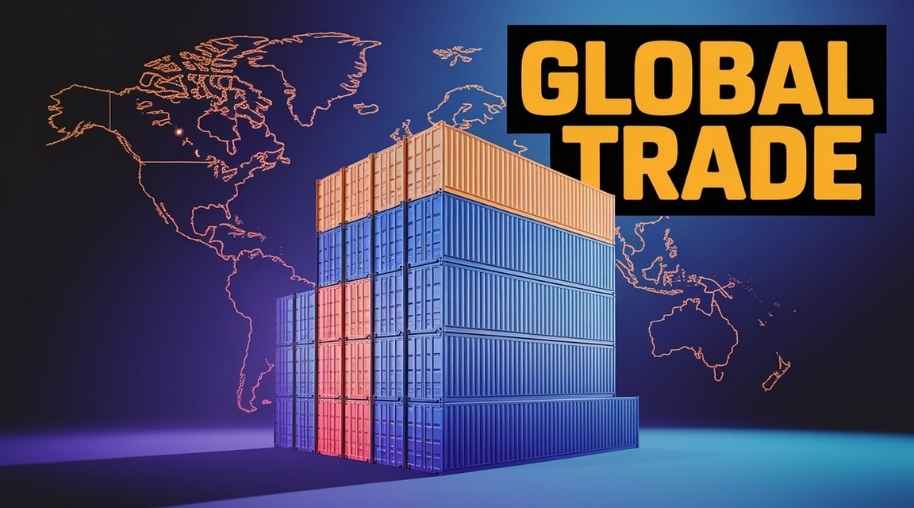UNCTAD Full Form-United Nations Conference or Trade and Development
by Shashi Gaherwar
0 2133
United Nations Conference on Trade and Development (UNCTAD): Shaping Global Trade
Introduction
The United Nations Conference on Trade and Development (UNCTAD) is a principal organ of the United Nations that promotes international trade and sustainable economic development. Established in 1964, UNCTAD plays a crucial role in assisting developing countries in their integration into the global economy while advocating for fair trade policies and sustainable development practices.

This article explores the objectives, functions, and significance of UNCTAD in shaping global trade policies and fostering economic growth worldwide.
What is UNCTAD?
The United Nations Conference on Trade and Development (UNCTAD) is a permanent intergovernmental body of the United Nations General Assembly (UNGA). It was established to address trade, investment, and development issues, with a special focus on developing nations.
Headquartered in Geneva, Switzerland, UNCTAD works towards creating a fair and inclusive global trading system. It provides policy recommendations, technical assistance, and research to support sustainable development and poverty reduction worldwide.
Objectives of UNCTAD
UNCTAD's primary objectives include:
- Promoting International Trade: Encouraging global trade policies that benefit developing nations.
- Facilitating Economic Growth: Enhancing economic opportunities and sustainable development.
- Encouraging Investment and Technology Transfer: Assisting countries in attracting foreign direct investment (FDI) and modern technology.
- Reducing Trade Barriers: Advocating for fair trade policies and eliminating protectionist measures.
- Providing Technical Assistance: Offering expertise to developing nations to strengthen their trade capacity.
- Sustainable Development Goals (SDGs) Support: Aligning economic policies with global sustainability initiatives.
Key Functions of UNCTAD
UNCTAD operates through various initiatives and programs that support international trade and development. Its key functions include:
- Policy Research and Analysis: Conducts in-depth research on trade, investment, and economic policies, publishing reports like the World Investment Report, Trade and Development Report, and Technology and Innovation Report.
- Trade Facilitation and Fair Trade Practices: Advocates for trade policies that benefit both developed and developing economies, addressing non-tariff barriers (NTBs) and promoting regional trade agreements.
- Investment Promotion and Enterprise Development: Supports countries in attracting foreign direct investment (FDI) and encourages policies that enhance entrepreneurship and private sector development.
- Technology and Digital Economy Advancement: Helps nations adopt digital trade solutions and e-commerce platforms, encouraging innovation-driven economies in developing nations.
- Debt Management and Financial Stability: Assists governments in managing external debt and financial crises, providing advisory services on debt restructuring and fiscal policies.
- Sustainable Development and Climate Action: Works towards achieving UN Sustainable Development Goals (SDGs), encouraging environmentally sustainable practices and supporting climate finance initiatives.
UNCTAD’s Impact on Global Trade and Development
UNCTAD has played a significant role in shaping international trade and development policies. Notable contributions include:
- Establishing Generalized System of Preferences (GSP): A trade policy granting developing countries preferential access to developed markets.
- Enhancing Digital Trade: Advocating for digital transformation in global commerce.
- Improving Global Supply Chains: Promoting efficiency and sustainability in trade logistics.
- Supporting Least Developed Countries (LDCs): Assisting low-income nations in achieving economic growth.
- Encouraging Gender Equality in Trade: Ensuring equal opportunities for women in economic development.
Challenges Faced by UNCTAD
Despite its achievements, UNCTAD faces several challenges in executing its mission:
- Geopolitical Conflicts and Trade Wars: Rising trade tensions and protectionism among major economies threaten free and fair trade.
- Economic Disparities Among Nations: Wealthier nations dominate global trade, while developing countries struggle to compete.
- Digital Divide and Technological Barriers: Many developing nations lack access to digital trade infrastructure, hindering their participation in the global economy.
- Climate Change and Environmental Concerns: The need for sustainable trade policies is critical, requiring stronger climate-friendly economic policies.
Future of UNCTAD
As the world evolves, UNCTAD’s role in global trade and development will remain vital. Its future focus includes:
- Promoting digital trade and e-commerce for economic growth.
- Strengthening trade policies to reduce economic inequalities.
- Encouraging sustainable investment and climate-resilient economies.
- Supporting post-pandemic economic recovery through policy guidance.
- Supporting post-pandemic economic recovery through policy guidance.
The United Nations Conference on Trade and Development (UNCTAD) plays a pivotal role in shaping international trade policies, promoting sustainable economic development, and supporting developing nations. With its continued focus on fair trade, digital economy, and sustainable growth, UNCTAD remains a cornerstone of global economic stability and prosperity.
By addressing challenges such as trade barriers, economic disparities, and climate concerns, UNCTAD aims to create a more inclusive and sustainable global economy. As globalization progresses, its role in shaping equitable trade policies and supporting economic development will be more crucial than ever.
This article provides a detailed overview of UNCTAD, its functions, and its impact on global trade. Understanding its significance is essential for policymakers, economists, and stakeholders involved in international trade and development.
Further Learning Resources
If you’re passionate about building a successful blogging website, check out this helpful guide at Coding Tag –
For dedicated UPSC exam preparation, we highly recommend visiting www.iasmania.com. It offers well-structured resources, current affairs, and subject-wise notes tailored specifically for aspirants. Start your journey today!

Share:








Comments
Waiting for your comments